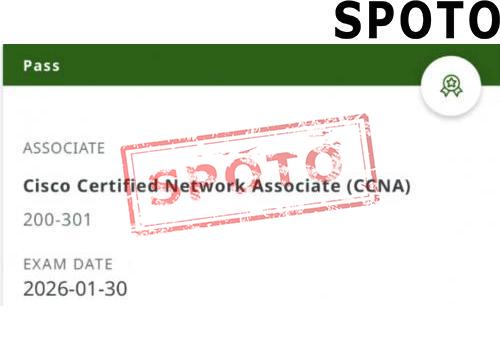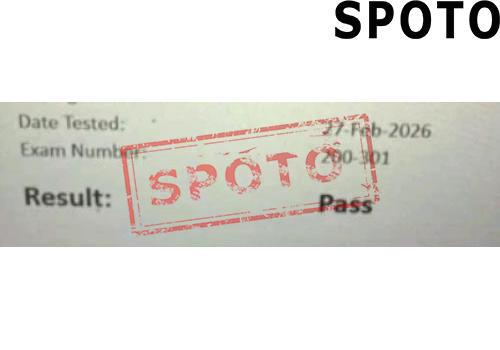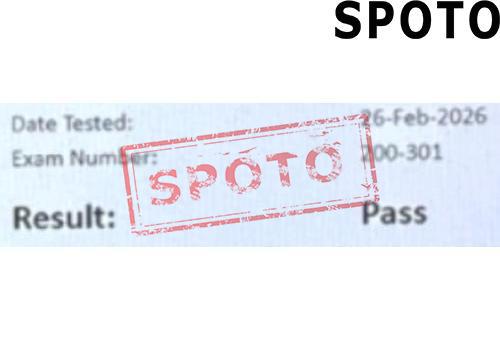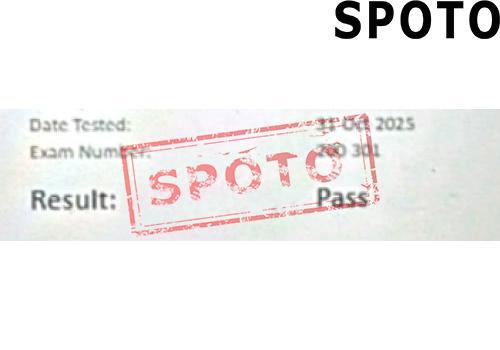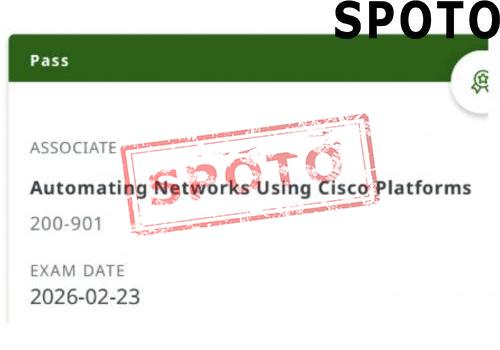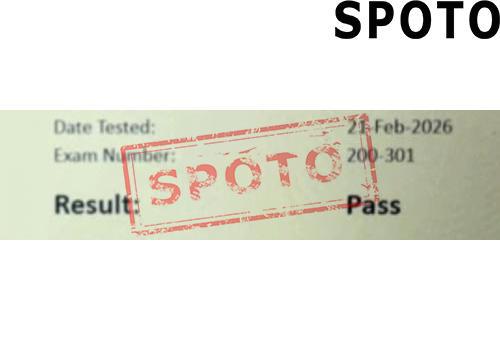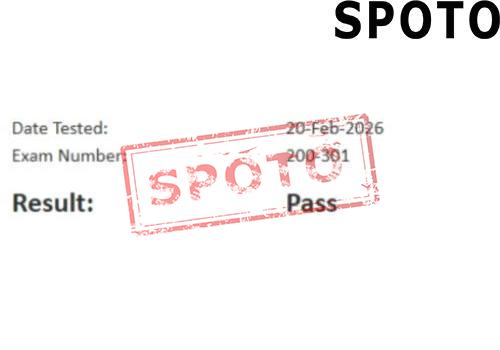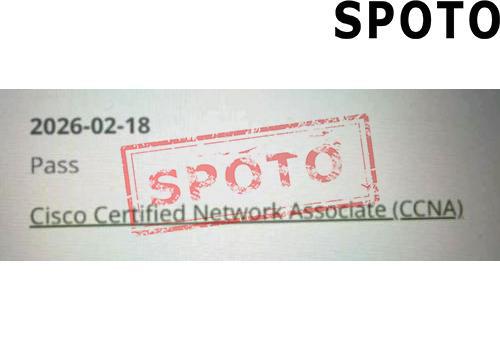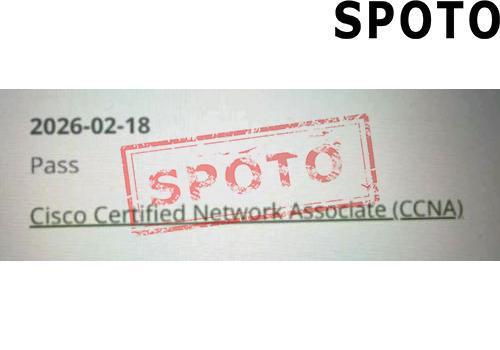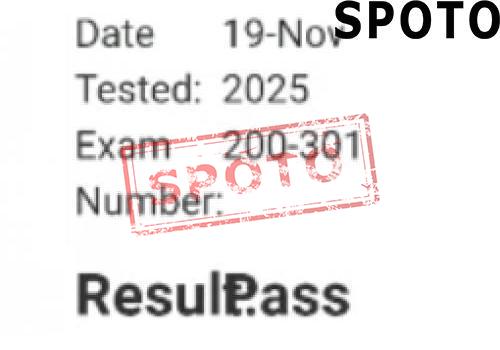
Earning a Cisco Certified Network Associate (CCNA) certification is an essential milestone for anyone pursuing a career in networking. It demonstrates your ability to install, configure, and troubleshoot networks, and serves as a gateway to more advanced certifications like CCNP and CCIE. While the CCNA exam can seem challenging, it is entirely possible to pass on your first attempt with the right preparation, study strategies, and mindset.
In this article, we'll share the best tips to help you pass the CCNA exam on your first try. These tips will cover everything from understanding the exam format to adopting effective study habits and utilizing the right resources. Let's dive in!
1. Understand the CCNA Exam Structure
Before diving into your studies, it's important to have a clear understanding of what the CCNA exam entails. The CCNA exam (200-301) covers a broad range of networking topics, including:
- Network fundamentals: OSI and TCP/IP models, IP addressing, and subnetting.
- Routing and switching: Basic router and switch configurations, VLANs, OSPF, and EIGRP.
- Network security: Firewalls, VPNs, and basic security configurations.
- Automation and programmability: Basic network automation concepts using tools like Python and APIs.
The exam consists of 120 minutes of multiple-choice and simulation questions, with topics weighted differently. Knowing the exam structure will help you prioritize your studies and focus on areas with higher weight.
2. Create a Study Plan and Stick to It
Passing the CCNA exam on your first attempt requires consistent and structured preparation. Start by creating a study plan that outlines the topics you need to cover and sets deadlines for each section.
Suggested study plan breakdown:
- Week 1-2: Networking basics, OSI and TCP/IP models, and IP addressing.
- Week 3-4: Subnetting, VLANs, and basic routing concepts (RIP, OSPF).
- Week 5-6: Advanced routing protocols, and network security fundamentals.
- Week 7-8: Network automation, troubleshooting, and exam review.
By breaking down your study material into manageable sections, you avoid overwhelming yourself and ensure that you cover every topic in the syllabus.
3. Use High-Quality Study Materials
The quality of your study materials can make a huge difference in your preparation. Cisco offers official resources like the CCNA Study Guide and Cisco Press books, which are excellent for understanding core concepts and exam objectives. Additionally, make use of:
- Video Tutorials: Platforms like Udemy, CBT Nuggets, or Pluralsight provide comprehensive video courses that explain networking concepts in an easy-to-understand way. These are especially helpful if you're a visual learner.
- Cisco Packet Tracer and GNS3: Hands-on practice is essential for mastering CCNA. Tools like Cisco Packet Tracer and GNS3 allow you to simulate network configurations, which will help you better understand routing, switching, and troubleshooting in a virtual environment.
- Practice Exams: Using practice exams will help you become familiar with the types of questions you'll encounter on the test. Platforms like SPOTO offer real CCNA dumps and excellent practice exams that mimic the real CCNA test.
4. Master Subnetting
Subnetting is one of the most important—and challenging—topics on the CCNA exam. You will need to understand how to calculate subnets, subnet masks, and IP address ranges quickly and accurately. If you're not comfortable with subnetting, take extra time to master it.
Some tips for mastering subnetting:
- Practice regularly: Do as many subnetting practice questions as possible.
- Use subnetting charts: Some students find it helpful to use them as quick reference guides.
- Understand the logic: Instead of memorizing formulas, focus on understanding how subnetting works. This will make it easier to calculate subnets during the exam.
5. Hands-On Practice is Crucial
Theory alone won't get you through the CCNA exam—you need hands-on experience. The CCNA exam requires you to configure and troubleshoot networks, so it's essential that you practice what you learn in a real-world or simulated environment.
- Cisco Packet Tracer: This free tool from Cisco lets you simulate network devices and configurations. You can set up routers, switches, and other devices to practice everything from basic configurations to advanced troubleshooting.
- GNS3: If you want a more robust tool, GNS3 offers a more detailed simulation and allows you to emulate real Cisco IOS software.
- Physical Equipment: If you can get your hands on physical Cisco routers and switches, that's ideal. However, for most students, simulators and virtual labs are sufficient.
The key is to practice regularly, try different configurations, and troubleshoot common network issues.
6. Join Study Groups and Online Communities
Studying for CCNA can be a lonely endeavor, but it doesn't have to be. Joining study groups and online communities can provide support, answers to your questions, and motivation to keep going.
Some great online resources include:
- Reddit's r/ccna: A vibrant community where you can ask questions, share study tips, and learn from others.
- Cisco Learning Network: Cisco's official platform for certification-related discussions, webinars, and study resources.
- Discord and Facebook Groups: Many CCNA study groups are active on social media platforms, where you can connect with other aspiring network engineers.
Learning from others and sharing your own insights can make the studying process more enjoyable and less stressful.
7. Review, Review, Review
The final step in your CCNA preparation should involve reviewing all the material you've covered. Focus on:
- Weak Areas: Identify the topics you struggled with during your study and spend more time reviewing them.
- Practice Exams: Take several full-length practice exams to simulate the test environment. Aim for a consistent score of at least 85% before attempting the real exam.
- Time Management: During your practice exams, try to complete the questions within the allotted time to get used to the pace of the real exam.
8. Stay Calm and Confident on Exam Day
The day of the exam can be stressful, but keeping a calm and confident mindset is key to passing the test. Some last-minute tips:
- Get enough rest: Don't cram the night before the exam. Get a good night's sleep to ensure you're alert and focused during the test.
- Read each question carefully: Make sure you understand what each question is asking before answering.
- Don't rush: Pace yourself and avoid spending too much time on any single question.
Remember, you've prepared well, and you can do this.
Conclusion
With the right approach, dedication, and study habits, passing the CCNA exam on your first attempt is absolutely achievable. Focus on understanding the material, practicing regularly, and using high-quality resources. Don't rush the process—ensure that you build a solid foundation before moving on to more advanced topics. And most importantly, stay consistent and confident in your ability to succeed.
